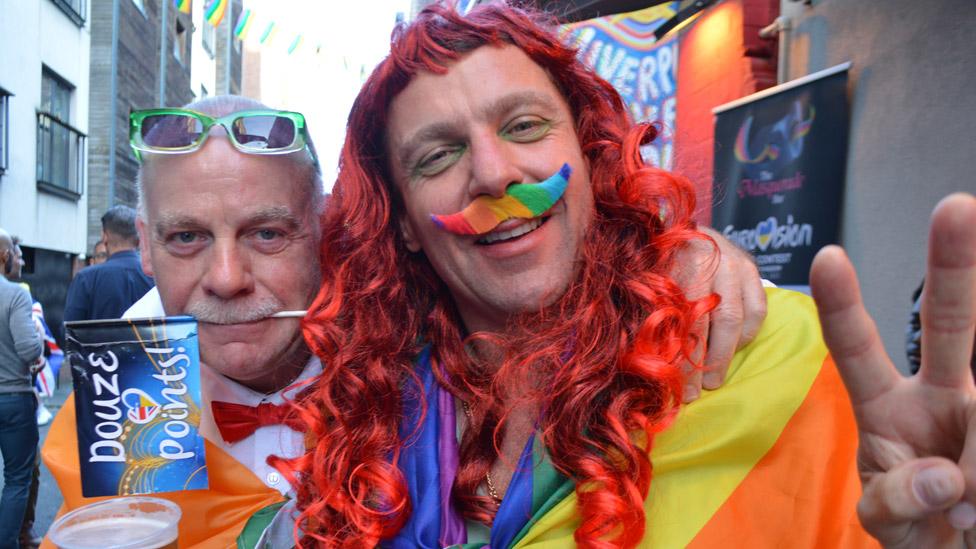Liverpool plans for more cultural events after Eurovision
- Published
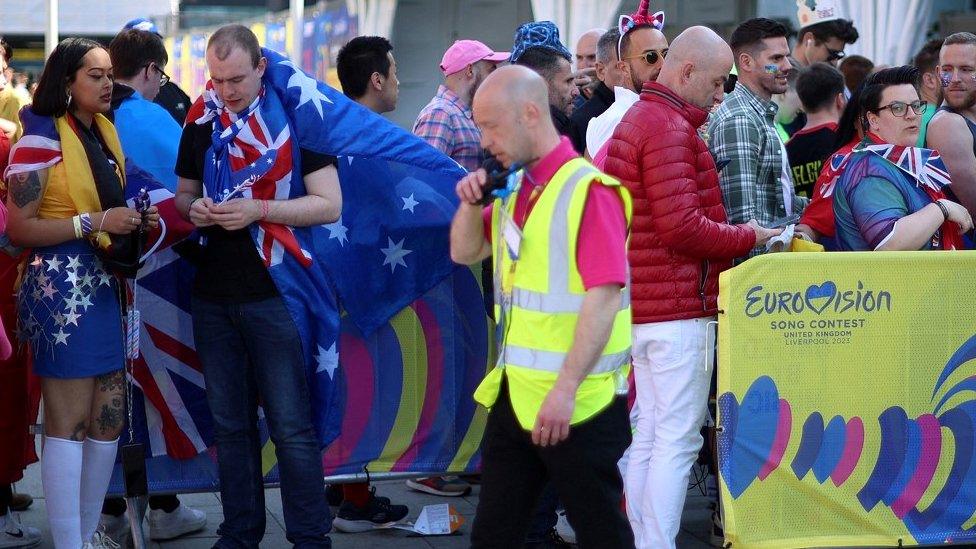
Local officials want to sustain Liverpool's impact as a music city
Liverpool officials want to embrace cultural "moments of absolute global significance" after hosting Eurovision.
Up to 500,000 people visited the city this May with businesses describing "footfall like Christmas".
Initial analysis of the impact of the two weeks of shows, events and cultural engagement was shared at the Modern Music Cities conference.
It showed 24% of visitors from Spain, France, Romania, Poland and Estonia were more likely to come again.
Work on what can be learned from the available data has been led by Liverpool's director of public health, Prof Matt Ashton.
He said he hoped the study would help "sustain Liverpool as a music city".
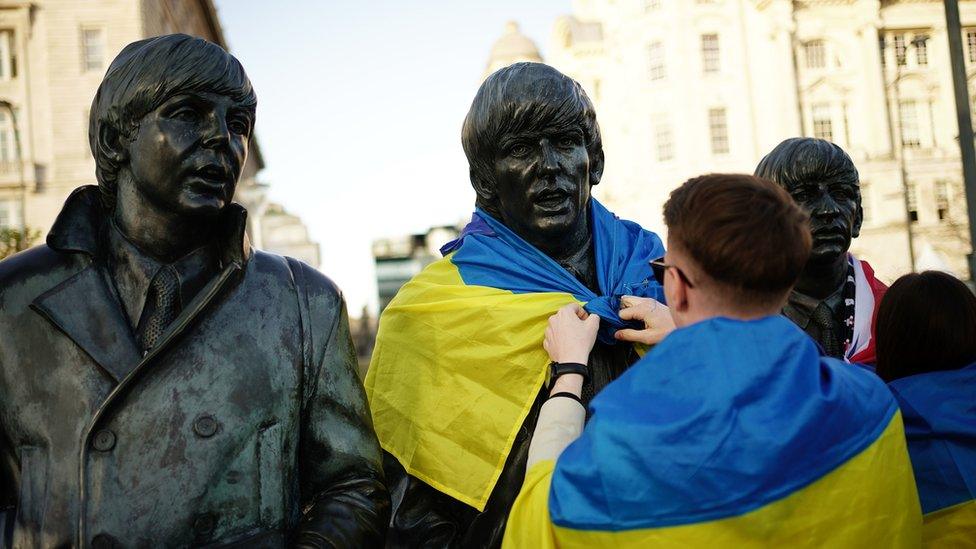
Liverpool showcased Ukrainian culture across the city and its events
Speaking at the Modern Music Cities conference, held in Liverpool, he said: "It's really important to try and understand the impact and learn from it.
"There has to be an impact on health, wellbeing and the economy."
He said more than 75% of survey respondents said they felt the city had adequate transport and policing throughout the event, while 85% agreed it was a safe place for a night out and would recommend visiting.
The city was chosen to host the contest on behalf of 2022 winners Ukraine due to the Russian invasion.
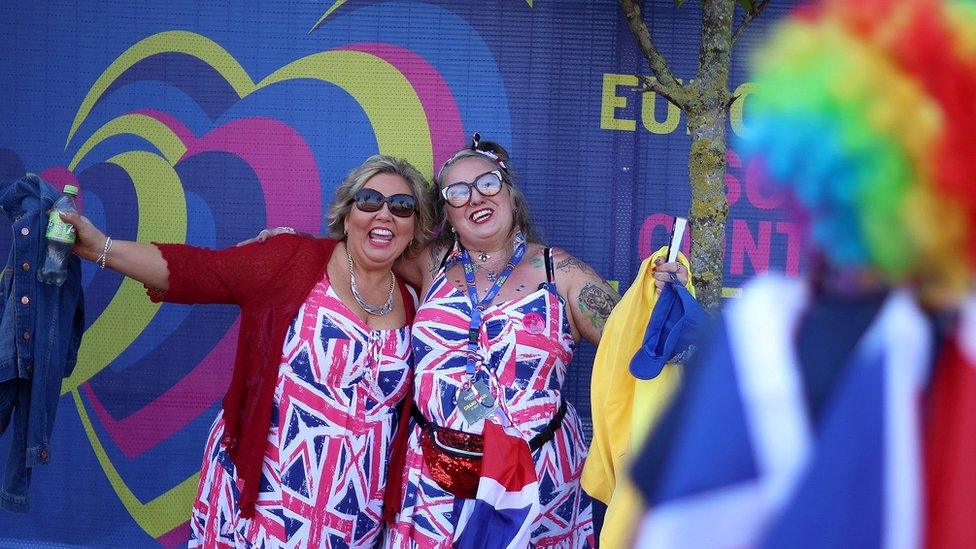
The event was watched by 11 million people in the UK and many more internationally
Claire McColgan, director of Culture Liverpool, said the city wanted to embrace "moments of absolute global significance" of which Eurovision was the "epitome".
Ms McColgan said it was very rare to see the levels of support and excitement for an event that was not sport-related, adding "we milk it for everything we've got".
Robert Specterman-Green, from the Department for Digital, Culture, Media and Sport, said the government department had "taken its hat off to Liverpool" after Eurovision organiser Martin Österdahl said the city had "set a new bar" for the event.
A summary report of Eurovision's wider impact is due to be published in October to coincide with an evaluation conference.
Next year's contest will be held in Malmö after it was won this May by Sweden's Loreen, who also came first in 2012.

Why not follow BBC North West on Facebook, external, Twitter, external and Instagram, external? You can also send story ideas to northwest.newsonline@bbc.co.uk, external
Related topics
- Published16 May 2023
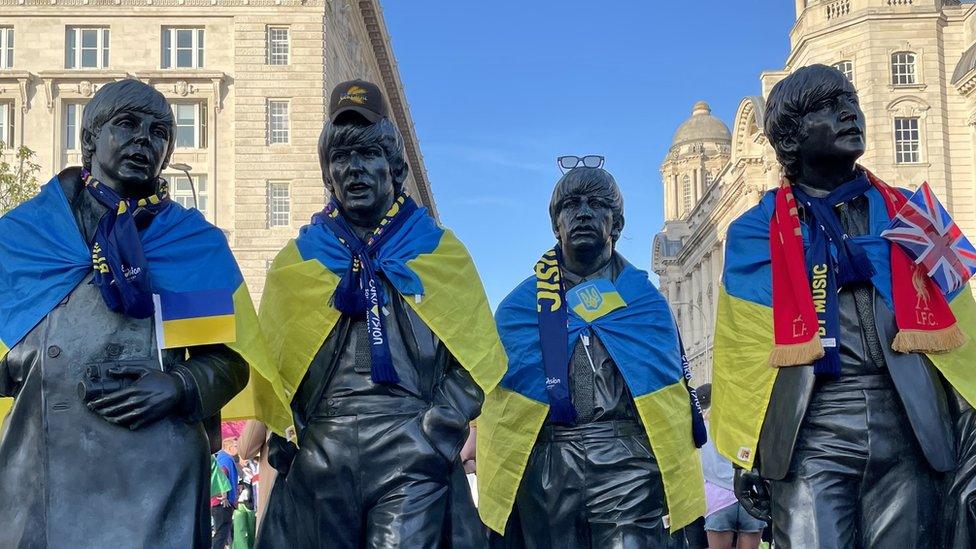
- Published14 June 2023
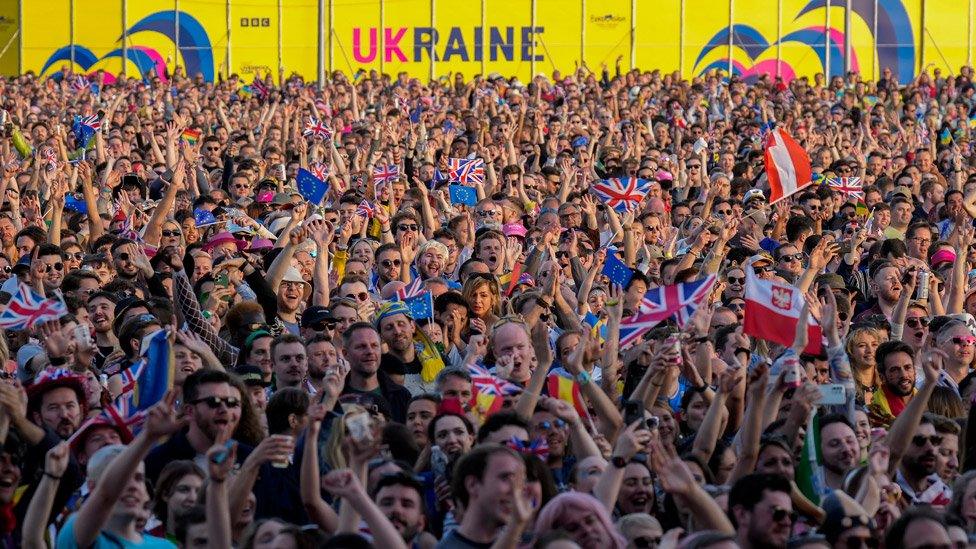
- Published7 July 2023
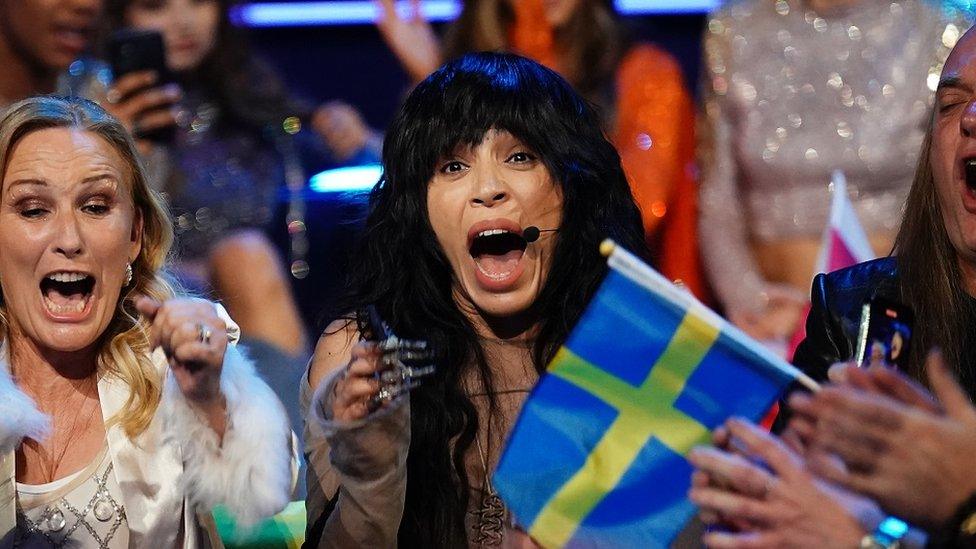
- Published14 May 2023
